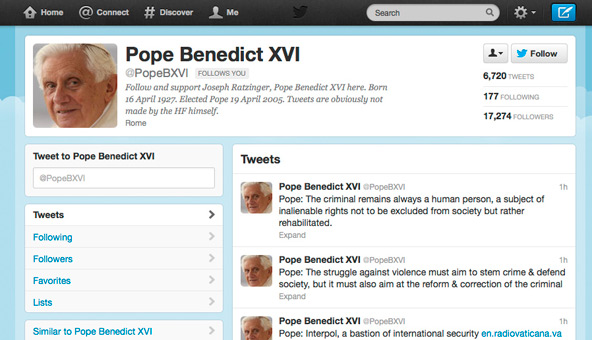Vatican Deactivates Mobile Phones For Papal Election

Table of Contents
Securing the Secrecy of the Papal Election
The Importance of Secrecy in Papal Conclaves:
Secrecy in Papal Conclaves is not a modern invention; it's a cornerstone of the process, dating back centuries. Maintaining this secrecy is paramount for several reasons:
- Historical Context of Secrecy: Historically, the secrecy surrounding Papal elections has served to prevent undue influence from outside forces and protect the integrity of the voting process.
- Preventing Outside Influence: A lack of secrecy could open the door to political maneuvering, bribery, or coercion, potentially compromising the free and fair selection of the next Pope.
- Maintaining the Sanctity of the Process: The election of a Pope is a deeply spiritual and significant event for Catholics worldwide. Secrecy helps maintain the sanctity and solemnity of this process.
- Avoiding Leaks and Speculation: Premature leaks can lead to widespread speculation, potentially influencing the outcome of the election and causing unrest within the Church.
The historical precedent for secrecy is well-documented. Numerous accounts throughout history detail instances where leaks during past Papal elections led to controversy and undermined the process. The potential negative consequences of outside interference or premature announcements are significant, potentially fracturing the unity of the Catholic Church.
Mobile Phones as Potential Security Risks:
In today's hyper-connected world, mobile phones present unique security risks that were unimaginable in previous centuries. The Vatican's decision to deactivate them stems from a recognition of these vulnerabilities:
- Potential for Unauthorized Communication: Mobile phones could be used to leak information to the media or to communicate with external parties, potentially influencing the voting process.
- Leaks to the Media: Unauthorized photographs, videos, or even snippets of conversation could be easily disseminated via social media or traditional news outlets.
- External Manipulation: Mobile phones could be targeted for hacking or eavesdropping, potentially allowing external actors to influence the outcome of the election.
- Espionage Concerns: The sensitive nature of the Papal election makes it a potential target for espionage, and mobile phones could be a vector for such activities.
The vulnerabilities associated with mobile phones are significant. Eavesdropping, data breaches, and unauthorized recordings are all real possibilities, potentially compromising the integrity of the election and damaging the reputation of the Vatican.
The Practical Implications of the Mobile Phone Deactivation
Challenges Faced by Participants:
The deactivation of mobile phones presents significant practical challenges for the cardinals and other participants in the Papal Conclave:
- Difficulty in Contacting Family: Cardinals may face difficulties in contacting their families during this critical period, leading to personal anxieties and logistical problems.
- Limited Access to Information: The lack of access to mobile phones restricts their ability to access news and information from outside the Vatican.
- Reliance on Traditional Communication Methods: Participants must rely on older, less efficient methods of communication, such as landlines or designated messengers.
- Potential Logistical Difficulties: Managing personal and professional responsibilities without mobile access can be a significant logistical challenge.
The inconveniences faced by the participants highlight the stark contrast between the traditional nature of the Conclave and the modern reliance on mobile technology.
Alternative Communication Methods Employed:
To mitigate the challenges of the mobile phone ban, the Vatican has implemented alternative communication methods:
- Landlines: Traditional landline phones provide a secure and controlled means of communication within the Vatican.
- Internal Communication Systems: The Vatican likely utilizes its own internal communication network for secure messaging and information dissemination.
- Designated Messengers: Traditional messengers may be employed for delivering urgent messages or documents.
- Pre-arranged Contact Points: Participants may have established pre-arranged contact points for emergencies or essential communication.
Global Reaction and Media Coverage
Media Scrutiny and Speculation:
The mobile phone ban has understandably attracted significant media attention, creating challenges for journalists covering the Papal election:
- Increased Media Interest: The unique nature of this decision has amplified global interest in the Papal election.
- Challenges for Reporting: The lack of access to mobile phones makes real-time reporting more difficult, potentially resulting in delays or less comprehensive coverage.
- Reliance on Limited Information: Journalists must rely on limited official statements and traditional news channels for updates.
- Impact on Global News Coverage: The decision influences the scope and depth of global news coverage surrounding the Papal election.
Public Opinion and Social Media Discussion:
The Vatican's decision has sparked considerable discussion on social media and in the public sphere:
- Social Media Reactions: Social media platforms have been abuzz with reactions ranging from support for maintaining tradition to criticism of the perceived inconvenience.
- Varying Opinions on the Decision: Public opinion is divided, with some praising the move as upholding the sanctity of the process and others questioning its practicality in the modern age.
- Comparisons to Other High-Profile Events with Similar Measures: The decision has drawn comparisons to security measures implemented at other high-profile events, sparking debate about the balance between security and convenience.
Conclusion
The Vatican's decision to deactivate mobile phones for the Papal election underscores the importance of secrecy and tradition in this sacred process. While the temporary communication blackout presents challenges, it reinforces the solemnity and significance of selecting a new leader for the Catholic Church. The historical context and modern security concerns make the measure a necessary step in maintaining the integrity of the Papal Conclave. The reliance on traditional communication methods provides a fascinating insight into the enduring power of established protocols within the Vatican.
Call to Action: Stay informed on the latest developments regarding the Papal election. Follow reputable news sources for updates on this significant event and learn more about the complexities surrounding the selection of the next Pope. Follow the ongoing coverage of the Papal Election for further insight into this unique process and understand the implications of this year's communication blackout.

Featured Posts
-
 Understanding The 2025 Nhl Draft Lottery Implications For The Utah Hockey Club
May 07, 2025
Understanding The 2025 Nhl Draft Lottery Implications For The Utah Hockey Club
May 07, 2025 -
 Todays Lotto Lotto Plus 1 And Lotto Plus 2 Results
May 07, 2025
Todays Lotto Lotto Plus 1 And Lotto Plus 2 Results
May 07, 2025 -
 Hqayq Mdhhlt En Jaky Shan Hyat Mlyyt Balmghamrat Walinjazat
May 07, 2025
Hqayq Mdhhlt En Jaky Shan Hyat Mlyyt Balmghamrat Walinjazat
May 07, 2025 -
 Jenna Ortegas Scream 7 Departure The Official Explanation
May 07, 2025
Jenna Ortegas Scream 7 Departure The Official Explanation
May 07, 2025 -
 George Pickens Trade Speculation Heats Up During Nfl Draft
May 07, 2025
George Pickens Trade Speculation Heats Up During Nfl Draft
May 07, 2025
